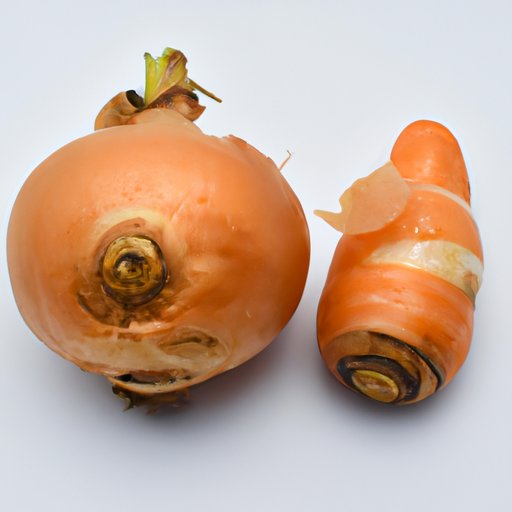
Introduction
A boil, also known as a skin abscess, is a painful and swollen lump that forms on the skin. It is usually caused by a bacterial infection and can develop in any part of the body. Boils can be uncomfortable and unsightly, and if not treated quickly, can lead to further complications.
In this article, we will explore various remedies for getting rid of a boil fast.
Home Remedies
Several home remedies can be used to effectively treat a boil:
Tea Tree Oil
Tea tree oil is a natural antiseptic and has antibacterial properties that can help in getting rid of boils. Applying tea tree oil to the boil can also help in reducing pain and inflammation.
To apply, dilute 3-4 drops of tea tree oil with a few drops of water. Apply this mixture to a cotton ball and place it on the affected area. Repeat this process several times a day until the boil begins to drain.
Turmeric
Turmeric is another natural ingredient that has antibacterial and antiseptic properties. Applying turmeric paste directly to the boil can help in reducing pain and inflammation.
To prepare a turmeric paste, mix a tablespoon of turmeric powder with a few drops of water to make a thick paste. Apply this paste to the boil and leave it on for about 20-30 minutes before washing it off with warm water. Repeat this process at least twice a day for best results.
Warm Compress
A warm compress is an effective way to reduce pain and inflammation associated with the boil. Apply a warm compress several times a day to the affected area for 10-15 minutes. This will help in softening the boil and promoting drainage.
Other Household Items That Can Be Used
Other household items that can be used to treat a boil include:
- Aloe Vera
- Apple Cider Vinegar
- Epsom Salt
Aloe Vera has antibacterial properties and can help in reducing inflammation. Applying Apple Cider Vinegar to the boil can help in drawing out the pus and reducing pain. Epsom salt has anti-inflammatory properties and can help in reducing pain and swelling.
Apply these remedies several times a day for best results.
Medical Treatments
If home remedies do not work, medical treatments may be necessary. Some of the medical treatments for boils include:
Incision and Drainage
Incision and drainage is a medical procedure that involves the draining of pus from the boil. The skin around the boil will be cleaned and numbed, and a small incision will be made to allow the pus to drain. After the draining, the area will be covered with a sterile dressing.
Antibiotics
If the infection is severe, antibiotics may be prescribed to help fight the bacteria causing the boil. Antibiotics can be taken orally or applied topically to the infected area.
Injections
Injections may be necessary if the boil is large and has not responded to other treatments. An injection of corticosteroids can help in reducing inflammation and promoting healing.
Diet Changes
Diet changes can also help in the treatment of boils. Some foods that can be incorporated into the diet to help in getting rid of boils are:
Garlic
Garlic has antibacterial properties and can help in reducing inflammation. Incorporating garlic into your diet can help in preventing the development of boils.
Ginger
Ginger has anti-inflammatory properties and can help in reducing pain and inflammation associated with boils. Adding ginger to tea or incorporating it into the diet can help in getting rid of boils.
Fruits High In Vitamin C
Fruits high in vitamin C, such as oranges, kiwi, and strawberries, can help in boosting the immune system and preventing the development of boils.
Preventive Measures
Preventive measures can help in the prevention of boils. Some preventive measures to consider are:
Good Hygiene
Good hygiene practices can help in preventing the development of boils. Wash your hands regularly and avoid sharing personal items such as towels and razors with others.
Tips For Keeping Skin Clean And Healthy
- Shower regularly and keep skin clean
- Avoid harsh soaps and chemicals that can irritate the skin
- Wash clothes and bedding regularly
Other Preventive Measures To Consider
Other preventive measures to consider include:
- Avoiding tight-fitting clothing that can cause friction
- Keeping blood sugar levels under control if you have diabetes
- Avoiding shaving areas that are prone to boils
When To See A Doctor
If a boil is large or causing severe pain and does not respond to home treatments, medical attention may be necessary. Symptoms that indicate a need for medical attention include:
- Increased pain and redness around the boil
- Fever
- Swelling
- Chills
Seek medical attention if any of these symptoms occur. Treatment may include incision and drainage or antibiotics.
Conclusion
Boils can be uncomfortable and unsightly, but there are several home remedies, medical treatments, and preventive measures that can be used to get rid of them fast. While most boils can be treated at home, seeking medical attention may be necessary in some cases. It is always important to maintain good hygiene practices and follow a healthy diet to prevent the development of boils.
If you are experiencing severe pain or any of the symptoms mentioned, seek medical attention right away. With proper treatment and preventive measures, boils can be easily managed and prevented from recurring.





